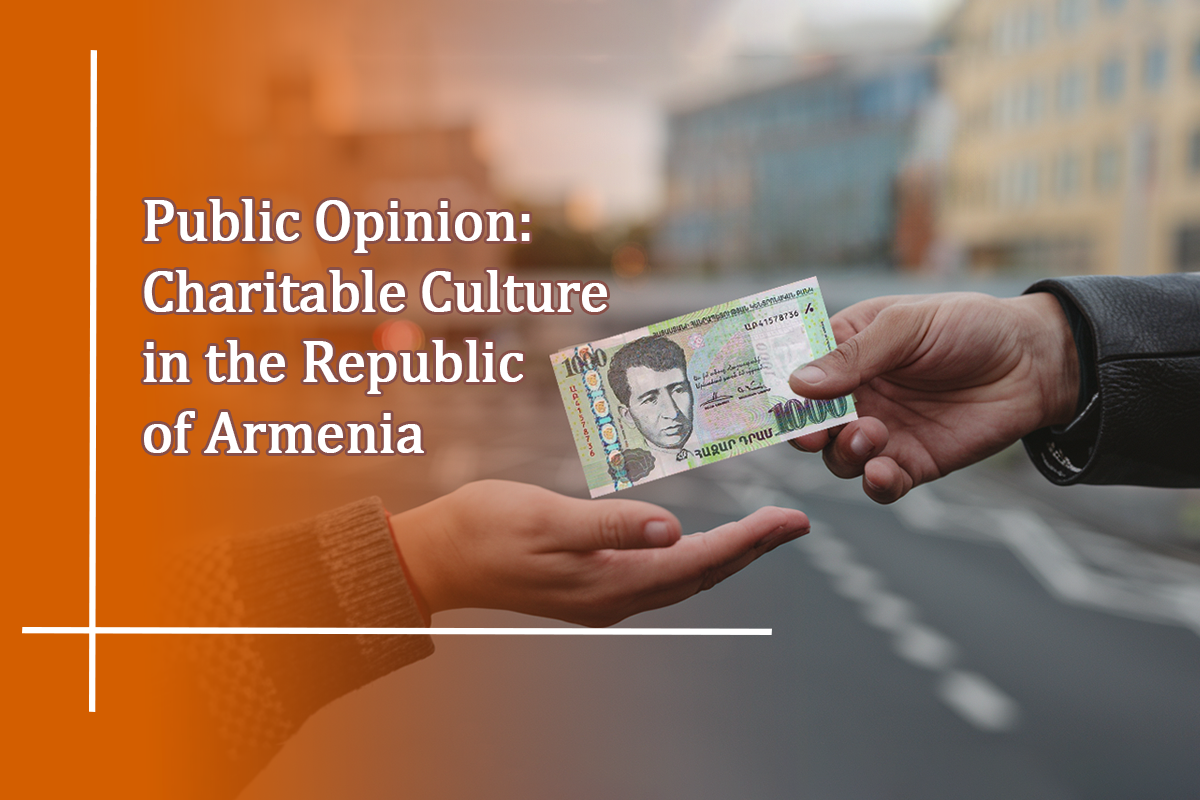The financial stability of Civil Society Organizations (CSOs) has essential significance in the development of democratic society. One of the stable funding sources is charity – voluntary donations from citizens and organizations.
Iravaban.net conducted a survey and identified the level of charitable culture formation in Armenia and factors hindering it. Around 120 questionnaires were filled out by different groups of citizens.
Thus, 62.3 percent of respondents were women, 37.7 were men.
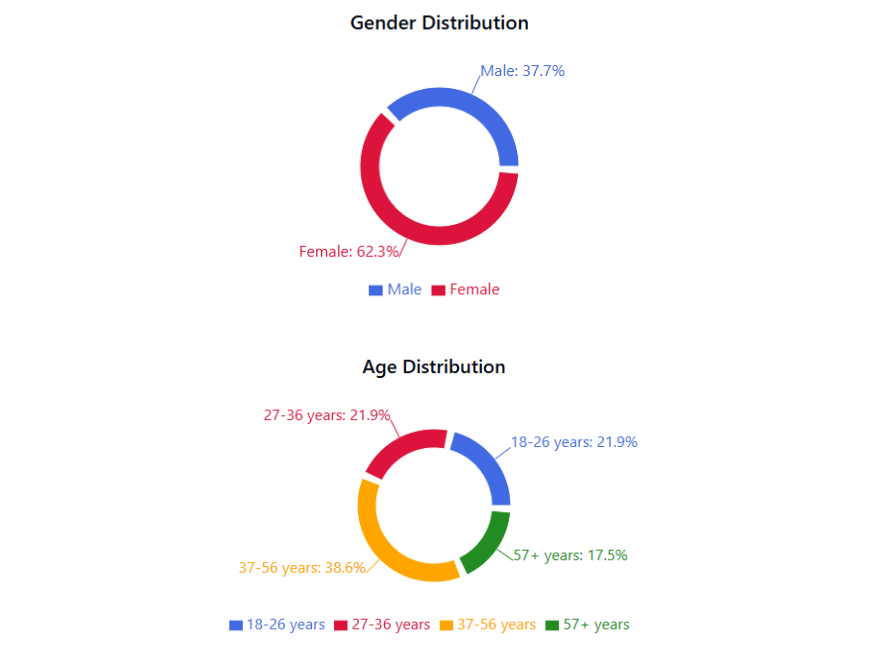
The majority of respondents, about 75 percent, were solvent and employed at the time of participating in the survey.
Only 6 people among respondents indicated that they unconditionally trust charitable or public organizations. 43.9 percent indicated that they trust more, 38 percent don’t trust, and 13.2 percent find it difficult to answer the question.
As reasons for not trusting, insufficient accountability and transparency were often mentioned, while ineffectiveness ranks second.
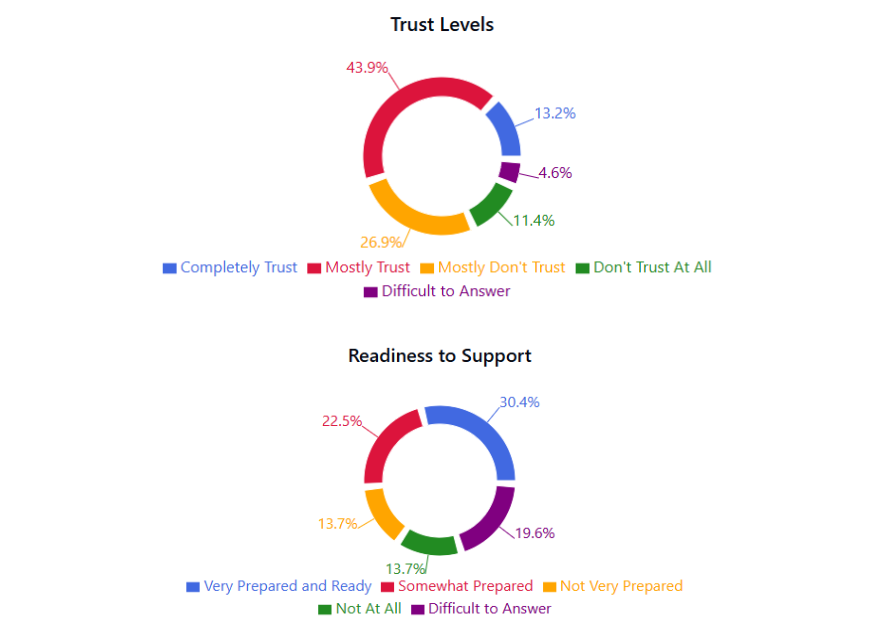
The majority of respondents (49.1%) also indicated that they have never financially supported charitable or public organizations during the past year. To the question: whether they are ready to financially support charitable or public organizations for public benefit purposes in the future, the majority of respondents (45.6%) answered that they are more ready. 13.2 percent are unconditionally ready.
Additionally, more than half of the respondents indicated the means (forms) by which they would prefer to support public/charitable organizations.
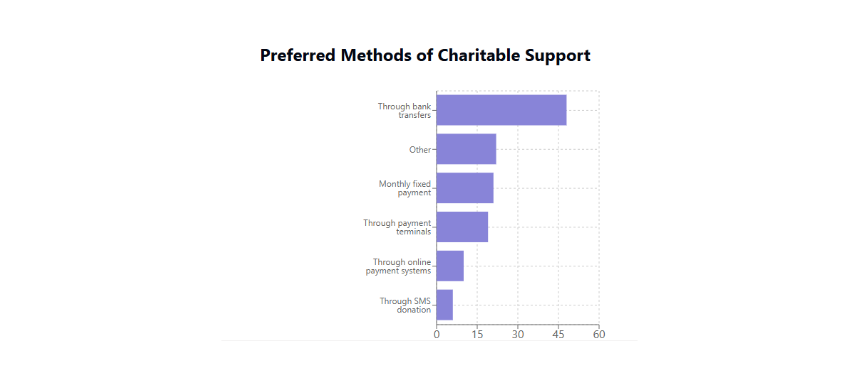
To the question: whether they are ready to direct a certain small percentage of their already paid taxes to public/charitable organizations (without paying additional tax), the majority of respondents indicated that they are either unconditionally or mostly ready. When answering the question about the amount, citizens indicated that they are ready to allocate 1-2 percent.
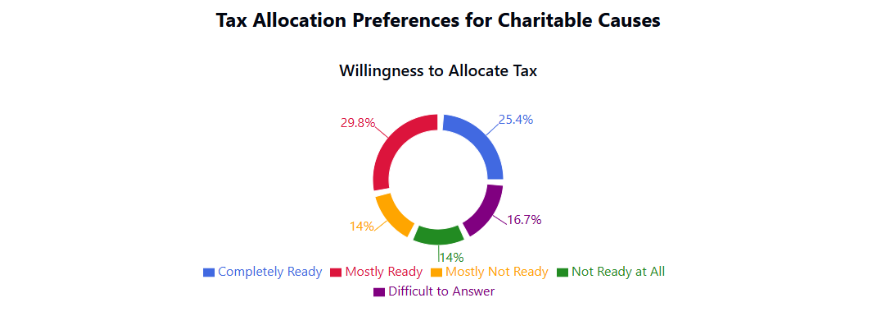
At the same time, citizens indicated when asked which option they would choose if such a choice was available in the Republic of Armenia, the majority (53.5%) indicated that they want to make donations to a specific NGO or charitable organization.
The surveyed citizens also selected the sectors which they are inclined to support.
Education sector is in first place, defense is in second place, and healthcare is in third place.
The research has revealed citizens’ dual attitude towards charitable and public organizations. Although 58.8% of respondents have a positive attitude, in practice, more than half of them (49.1%) have not provided any financial support during the past year. This may indicate that citizens avoid making direct donations, which may be due to the weakly developed charitable culture in the country.
At the same time, they have a positive attitude towards allocating a certain percentage (1-2%) of already paid taxes for charitable purposes, which indicates that society is ready to support charitable initiatives in the presence of appropriate institutional mechanisms.
The survey results also show a serious lack of trust, which is mainly due to insufficient transparency of organizations’ activities and lack of accountability. Therefore, for the development of charitable culture in Armenia, it is a priority to create an atmosphere of trust through significant improvement of CSOs’ transparency and accountability mechanisms.
This article was made possible by the generous support of the American people through the United States Agency for International Development (USAID). The content is the responsibility of the Armenian Lawyers’ Association NGO, a sub-grantee of Counterpart International, and does not necessarily reflect the views of USAID, the United States Government and Counterpart International.

